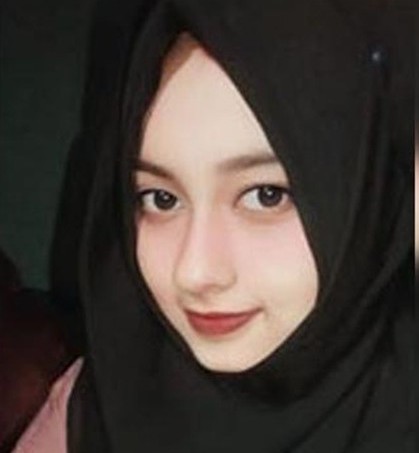On the morning of August 5, 2024, just before the regime fell, a teenage girl stood among thousands on the hot asphalt of Savar, raising her voice for justice. Hours later, she would be gone—leaving behind only memories, a grieving family, and the echo of her final phone call.
Nafisa Hossain Marwa was only 17. A girl with a heart full of dreams, a GPA of 4.25 in her HSC exams, and a future just within reach—but it slipped away, like the blood from the wound in her chest, after a bullet pierced her during a student protest at Savar Bazar Bus Stand.
She never got to hear the news that she had passed her exams with distinction.
Born and raised in hardship in Tongi’s Ershadnagar, Nafisa knew struggle intimately. Her father, Abul Hossain, sells tea by the roadside. Her mother, Kulsum Begum, had left for Kuwait as a domestic worker after their marriage broke under the weight of poverty. Nafisa and her little sister, Safa, were raised by their grandparents in a modest home in Kote Bari, Savar.
“She was always the brave one,” said her grandmother Amena Begum, tears streaming down her cheeks. “She acted like a grown-up from the time she could walk—taking care of Safa, always studying, helping neighbors. She was our little light.”
As a child, Nafisa rarely complained. She balanced her studies at Savar Laboratory College with chores at home. Later, she moved back to Tongi to live with her father and continued her education at Shahajuddin Sarker School and College. In every classroom, she stood out—disciplined, curious, and quietly determined.
But her courage didn’t stop at exams. When the Anti-Discrimination Student Movement began, Nafisa became one of its youngest and most unwavering participants.
“My daughter was brave,” her father Abul Hossain said, holding back sobs. “She believed in justice. I begged her to stay away. I told her, these fights are not for people like us—we’re poor. We sell tea. What can we change?”
But Nafisa looked him in the eye and said, “Baba, until the country is free, I won’t come home.”
At the end of July, she went to her uncle’s house in Savar. She had made up her mind to join a road march that began at Jahangirnagar University and was headed toward Dhaka. On August 5, she left with friends early in the morning. Her uncle tried to stop her. “Come back home. Don’t go,” he pleaded.
She didn’t listen. Later that day, the chaos erupted. Tear gas. Screams. Gunfire.
Nafisa was shot in the chest. Even as her life slipped away, she reached for her phone and called the man who had raised her with calloused hands and quiet pride.
“She said, Baba, I’ve been shot. I don’t think I’m going to make it. I’m dying. I’m at Labzone Hospital—please take my body home,” Abul Hossain recalled, his voice cracking. “I ran. I called her again, but someone else answered. They said… she is no more.”
Doctors at Enam Medical College Hospital later confirmed her death. Her uncle retrieved her body. Her mother flew back from Kuwait within the month, broken and unable to comprehend the loss.
“She promised to help me,” whispered Kulsum, clutching Nafisa’s school notebooks. “She said, ‘Amma, one day I’ll stand beside you—we’ll fix everything.’ But now… all I have are her words. Her pictures. Her scent on her pillow.”
Safa, her 12-year-old sister, still sleeps curled up on the side of the bed where Nafisa used to lie.
“She used to scold me, then hug me right after,” she said softly. “She was everything. My sister, my best friend. Where do I find another like her?”
To her family, Nafisa was more than a martyr. She was a fighter with a pen in one hand and a flag in the other. A girl who believed change was possible, even for the daughters of roadside tea sellers.
“She wasn’t just our daughter,” said her grandfather Imon Ali. “She belonged to the whole nation. She was fire, and she was hope.”
Now, a framed photo of Nafisa stands above the tea stall where her father still works—his eyes forever searching the road, though he knows she’s never coming home.
A murder case has been filed with the Savar Model Police Station. But justice, like Nafisa’s dreams, remains suspended in the air—unanswered.
She died with courage in her heart and revolution on her lips. Only the good die young.
Let her not be forgotten.


